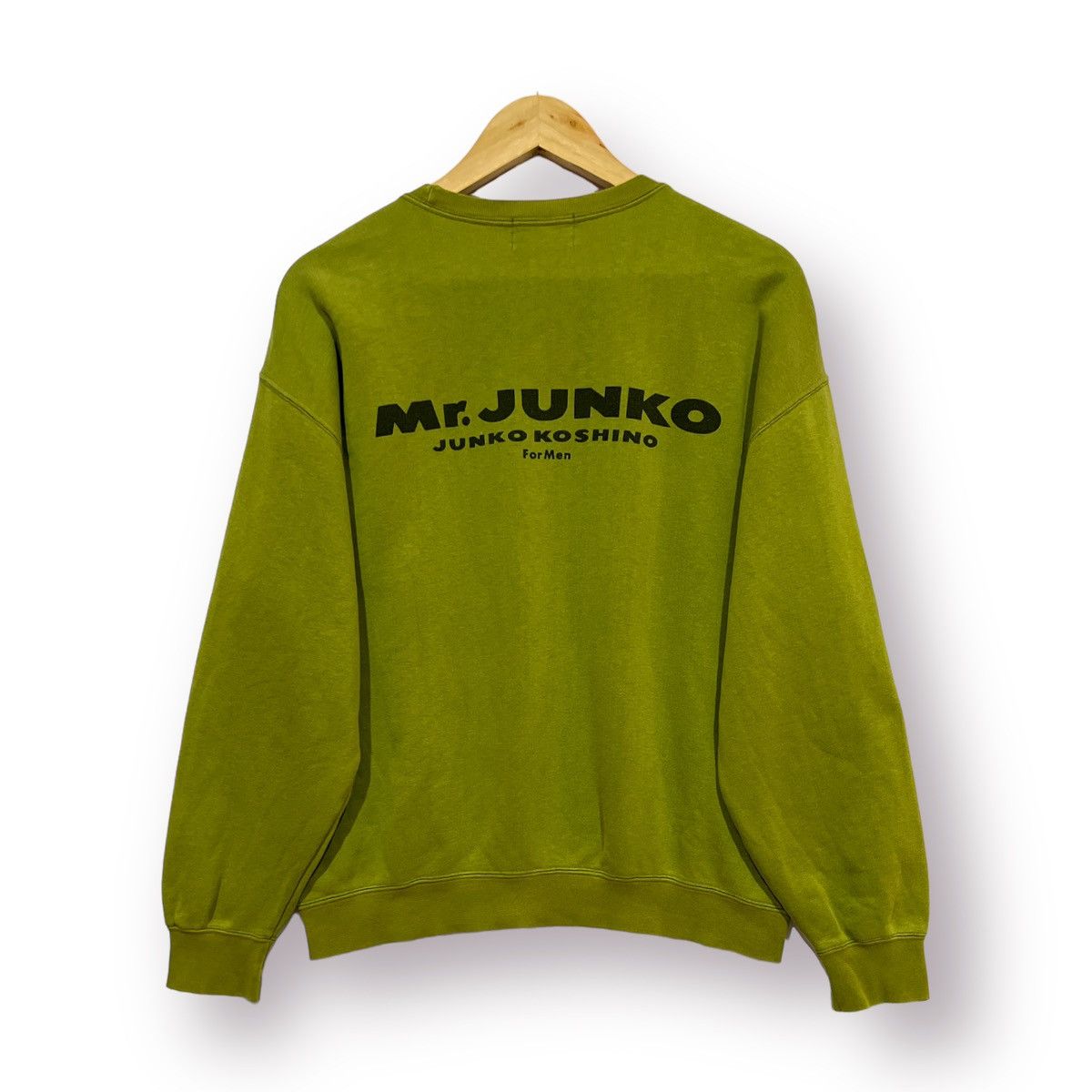So here we are, diving into one of the darkest stories in modern Japanese history. The name Junko Furuta might not ring a bell for everyone, but it's a tale that sent shockwaves across Japan and still resonates today. This isn't just a story; it's a chilling reminder of the depths of human depravity and the importance of justice. Are you ready to uncover the truth behind this haunting case?
Let’s face it, true crime stories often leave us glued to the screen or flipping pages. But this one’s different. Junko Furuta’s case is not just about crime—it’s about what happens when society fails to protect its most vulnerable members. This story will make you think, feel, and maybe even question the world around you. So buckle up, because we’re about to dive deep.
And hey, before we get too far into the details, let’s set the stage. This isn’t just a crime story; it’s a reflection of societal issues, human psychology, and the importance of accountability. Junko Furuta’s case is more than just a name—it’s a lesson we can’t afford to forget.
- Adity Mistry New Sex Video The Buzz The Facts And The Truth
- Aditi Mistry Leak Video The Truth Behind The Sensation And What You Need To Know
A Brief Biography of Junko Furuta
Before we dive into the harrowing details of the case, let’s take a moment to understand who Junko Furuta was. Junko was born on October 25, 1971, in Tokyo, Japan. She was an ordinary teenager with dreams and aspirations, just like any other kid her age. But her life tragically came to an end in December 1988, when she became the victim of one of Japan’s most notorious crimes.
Here’s a quick glance at her life:
| Full Name | Junko Furuta |
|---|---|
| Date of Birth | October 25, 1971 |
| Place of Birth | Tokyo, Japan |
| Occupation | Student |
| Date of Incident | December 1988 |
| Cause of Death | Torture and Neglect |
Now that we’ve got the basics down, let’s explore the events that turned her life into a tragic headline.
The Infamous Junko Furuta Case
Alright, so here’s the deal. On December 1, 1988, everything changed for Junko Furuta. A group of high school students abducted her after a badminton match at her school. They took her to an abandoned house where she endured unimaginable horrors for over three months. This case wasn’t just a crime—it was a nightmare that shook the nation to its core.
Here’s the kicker: the perpetrators weren’t random strangers. They were her peers, her classmates, and people she trusted. How does something like this happen? How do teenagers cross that line into such extreme violence? These are the questions that still haunt Japan to this day.
Who Were the Perpetrators?
Let’s break it down. The main culprits in this case were four high school students, all between the ages of 16 and 17. They were identified as "Kondo," "Murakami," "Kobayashi," and "Yamashita" in official documents to protect their identities under Japan’s juvenile laws. But let’s not sugarcoat it—they were monsters.
- Kondo: The ringleader, known for his violent tendencies.
- Murakami: The one who reportedly initiated the abduction.
- Kobayashi: Played a supporting role but was equally complicit.
- Yamashita: The youngest, but no less guilty.
These weren’t just kids acting out. They were calculated, cold, and cruel. And the worst part? They got away with it for far too long.
Why Did They Do It?
Now, here’s the million-dollar question: why did they do it? Was it boredom? A twisted sense of power? Or something deeper? Experts have speculated that the perpetrators were influenced by violent media and a lack of proper guidance. But at the end of the day, no excuse can justify what they did to Junko Furuta.
This case is a stark reminder of the importance of mental health awareness and the need for better education on the consequences of violence. It’s not just about punishing the guilty; it’s about preventing these kinds of tragedies from happening in the first place.
The Aftermath: Justice Served?
When the case finally came to light in March 1989, it sent shockwaves through Japan. The perpetrators were arrested, and the nation demanded justice. But here’s the thing: because they were minors, they couldn’t be tried as adults. Instead, they were sentenced to juvenile detention centers, with the ringleader, Kondo, receiving the longest sentence of 15 years.
Now, I know what you’re thinking: 15 years for something so heinous? Yeah, it doesn’t sit right with most people. The legal system failed Junko Furuta, and it’s a failure that Japan is still grappling with today. The case sparked debates about juvenile justice, the death penalty, and the need for stricter laws.
Public Reaction and Media Coverage
The media went into a frenzy when the details of the case emerged. Junko Furuta’s story was splashed across newspapers, TV screens, and radio waves. The public was outraged, demanding accountability and change. But here’s the twist: some segments of society blamed Junko herself, claiming she brought it upon herself. Can you believe that? Blaming the victim is never the answer.
This case also highlighted the need for better media ethics. Sensationalism can sometimes overshadow the truth, and that’s exactly what happened here. Journalists need to remember that these are real people with real stories, not just headlines to boost ratings.
The Psychological Impact on Society
Let’s talk about the bigger picture. Junko Furuta’s case didn’t just affect her family and friends; it had a profound impact on Japanese society as a whole. It forced people to confront uncomfortable truths about youth violence, the justice system, and societal norms.
Studies show that violent crimes committed by juveniles have been on the rise in recent years. Why is that? Some experts point to the influence of violent video games and movies, while others blame a lack of parental supervision. But whatever the reason, one thing is clear: we need to do better.
Lessons Learned from Junko Furuta’s Case
So, what can we learn from all of this? First, we need to prioritize mental health education in schools. Kids need to understand the consequences of their actions and the value of empathy. Second, the justice system needs to evolve. Juvenile offenders shouldn’t get a free pass just because they’re young. And finally, society needs to stop blaming victims and start holding perpetrators accountable.
These lessons aren’t just for Japan; they’re universal. Every country can learn from Junko Furuta’s case and work towards a safer, more just world.
The Legacy of Junko Furuta
Years have passed since Junko Furuta’s tragic death, but her legacy lives on. Her story has inspired countless books, documentaries, and even a movie. But more importantly, it has sparked conversations about justice, accountability, and the need for change.
Junko Furuta’s case is a reminder that every life matters. It’s a call to action for all of us to stand up against injustice and fight for a better world. Her memory deserves to be honored, not forgotten.
Remembering Junko: A Call to Action
So, what can you do? Start by educating yourself and others about the issues surrounding juvenile crime and justice reform. Support organizations that work to prevent violence and promote mental health awareness. And most importantly, never forget Junko Furuta’s story. Share it, talk about it, and keep the conversation going.
Conclusion: Reflecting on Junko Furuta’s Story
As we wrap up this deep dive into Junko Furuta’s case, let’s take a moment to reflect. This wasn’t just a crime story; it was a wake-up call. It showed us the importance of justice, accountability, and empathy. Junko’s story is a lesson we can’t afford to forget.
So, what’s next? It’s up to all of us to create a world where stories like Junko’s don’t happen. Stand up for justice, support those in need, and never stop fighting for a better tomorrow. And hey, don’t forget to share this article with your friends and family. The more we talk about these issues, the closer we get to making a difference.
Table of Contents
- A Brief Biography of Junko Furuta
- The Infamous Junko Furuta Case
- Who Were the Perpetrators?
- The Aftermath: Justice Served?
- The Psychological Impact on Society
- The Legacy of Junko Furuta
- Conclusion: Reflecting on Junko Furuta’s Story
Subheadings
- Why Did They Do It?
- Public Reaction and Media Coverage
- Lessons Learned from Junko Furuta’s Case
- Remembering Junko: A Call to Action
And there you have it, folks. Junko Furuta’s story is a powerful reminder of the importance of justice, accountability, and empathy. Let’s keep the conversation going and work towards a better, safer world for everyone. Until next time, stay informed and stay strong.
- Aditi Mistry Hot Live Latest Your Ultimate Guide To The Rising Star
- Adity Mistry New Hot Live Unveiling The Rising Star


